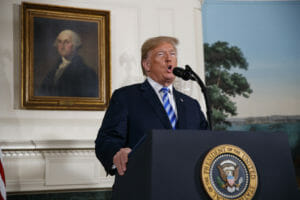Obama’s Fight Against the Politics of Evasion
Critics who argue that he is asking Congress to do too much are finding it far easier to talk about an overloaded system than to tell those without health insurance that they will have to wait a few more years.President Obama’s biggest task at his Tuesday news conference will not be to defend Treasury Secretary Tim Geithner or to push aside the administration’s bungling of the AIG bonus imbroglio. It will be to challenge Washington’s habit of evading substantive issues by transforming them into procedural questions.
A deep narrative is taking root in the political class and it goes something like this: Obama is biting off way more than he can chew, “overloading” the system and dealing with all sorts of “side issues,” when he should be focusing solely on the broken economy. He is said to be asking Congress to do too much.
Note that anyone who makes an argument of this sort is freed from responsibility to mention any of the specific problems Obama is proposing to take on. Insisting the economy trumps everything means you don’t have to say a thing about health care reform, energy, education and taxes.
And that’s the beauty of the critique of excessive ambition. It’s far easier to talk about an overloaded system than to tell those without health insurance that they will have to wait a few more years, or to be honest in saying that balancing the budget long-term will require raising taxes. It’s much easier to use the economic crisis as an excuse for inaction than to defend the status quo.
And the more time passes from last November’s election, the weaker Obama’s mandate to pursue his promises will become. By next year, the focus will be on the midterm elections.
The AIG flap and Friday’s dismal report from the Congressional Budget Office predicting that the deficit will surpass $1.8 trillion this year will only strengthen the forces of evasion.
Obama’s biggest problem on the AIG bonuses is that his administration spoke with multiple voices. Initially, top officials wanted to defend the decision to pay them as a necessary evil. Then Obama realized that the episode threatened his entire banking rescue plan, so he took on the role as denouncer in chief.
Administration officials I talked with were profoundly frustrated at how AIG had driven everything else off the news and dominated the agenda in Congress. Well, sure, the news and Congress are fickle. But an administration that has devoted so much public rhetoric to the need to fix an unjust “bubble” economy should have realized that it would suffer mightily if it were seen as complicit in Wall Street-style business as usual. It was as if the administration’s right hand (Treasury) did not know what its left hand (almost everyone else) was doing.
And then came the bad news on rising deficits. The CBO report was not unexpected: Everyone knew that a sinking economy would batter government revenues. The scary new numbers provided the evaders with more reasons to build roadblocks to Obama’s program.
Short-term, the report will increase pressure to cut Obama’s 2010 budget. But such cuts would be modest and symbolic. They would almost certainly come from domestic discretionary spending, budget talk for the relatively small part of the budget that does not go to defense, Social Security, Medicare and Medicaid. Such cuts now would just weaken efforts to stimulate the economy — which, if you’ll excuse the directness, would be stupid.
Obama’s top budget officials seem confident they can deal with this immediate difficulty. His larger challenge is to take on the politics of evasion promoted by those who would indefinitely delay health care reform, energy conservation and the expansion of educational opportunities. Already, his lieutenants are signaling how he will cast the choice: between “taking on the country’s long-term challenges” or just “lowering our sights and muddling through,” as one senior aide put it.
Whatever rhetorical strategy the president pursues, the burden in the argument should be on those who insist that the government is incapable of, say, repairing the banking system and fixing health care at the same time.
As a practical matter, Congress is already well into the task of writing a health care bill, and there is no reason it cannot be passed by the late summer or fall. There is certainly no way government can walk away from its responsibilities on education. And at least some first steps can be taken on energy and the environment.
As we all know, Obama promised change we can believe in. The operative verb in that slogan was believe. His task is to restore faith that what he had in mind is still possible.
E.J. Dionne’s e-mail address is postchat(at)aol.com.
© 2009, Washington Post Writers Group
Your support matters…Independent journalism is under threat and overshadowed by heavily funded mainstream media.
You can help level the playing field. Become a member.
Your tax-deductible contribution keeps us digging beneath the headlines to give you thought-provoking, investigative reporting and analysis that unearths what's really happening- without compromise.
Give today to support our courageous, independent journalists.






You need to be a supporter to comment.
There are currently no responses to this article.
Be the first to respond.